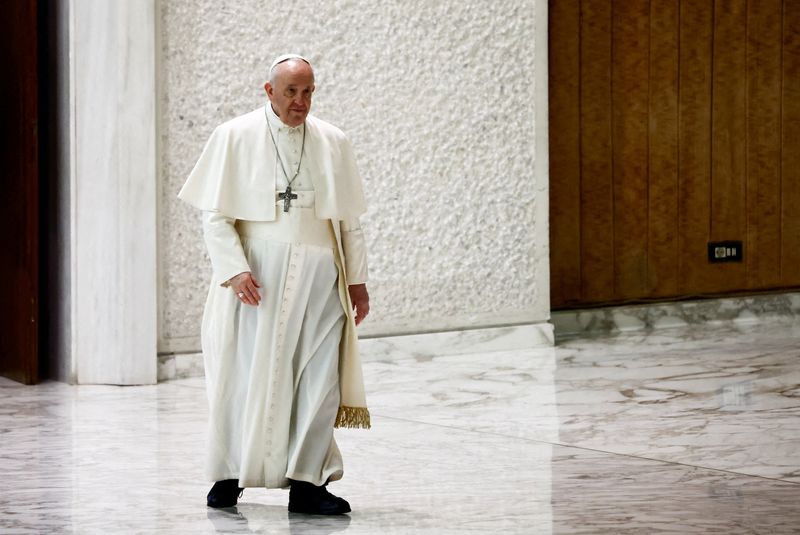
Italy's Constitutional Court vetoes referendum to liberalise cannabis
ROME (Reuters) - Italy's Constitutional Court on Wednesday rejected a request to hold a referendum on legalising the cultivation of cannabis, provoking the ire of promoters who called the decision a blow to democracy.
The referendum proposal sought to legalise the growing of weed for personal use and ease sanctions on other cannabis-related crimes, with offenders no longer risking prison sentences for selling small amounts of the drug.
Giuliano Amato, the Constitutional Court president, said the referendum included other narcotics considered to be hard drugs, which could not be liberalised.
"This is enough to make us violate multiple international obligations," Amato, a former prime minister, told a news conference.
Lawmaker Riccardo Magi, one of the referendum's leading advocates, told Reuters the court's decision was "a terrible blow to democracy," after hundreds of thousands of people had signed up to the proposal.
"It's almost impossible to hold a referendum in Italy," he said.
On Tuesday, the Court turned down a right-to-die referendum, saying the proposal did not safeguard minimum constitutional standards governing the protection of human life.
The campaigns launched on the right-to-die and cannabis referendums had gathered together over 1.8 million signatures.
However five other, less high profile referendum proposals about largely arcane aspects of the justice system were accepted. These will be submitted to the popular vote next spring.
(Reporting by Angelo Amante, editing by Gavin Jones, William Maclean)
A GOD GIVEN RIGHT-FREE CHOICE
Italy's Constitutional Court blocks right-to-die referendum
02/15/2022 |

ROME (Reuters) - Italy's Constitutional Court on Tuesday turned down a request to hold a national referendum on the right to die after proponents of the move collected over a million signatures in support.
Italian right-to-die advocates seek to partly abrogate sanctions imposed on those who assist in the suicide of patients who have incurable illnesses or suffer intolerable pain and have already had palliative care.
In a statement, the Constitutional Court said repealing punishments would not safeguard the minimum constitutional standards governing the protection of human life, "particularly for the weak and the vulnerable".
In 2019, the court partially decriminalised assisted suicide under certain conditions if local health authorities and an ethics board approved, but it also advised that parliament should pass a law regulating the practice.
Marco Cappato, one of the leading advocates of a referendum, said the court's decision was "a bad news for those who suffer and will have to (face) even longer unbearable suffering against their will".
Right-to-die proponents last year collected more than twice the 500,000 signatures needed to seek approval of a referendum.
Parliament is debating a law that would allow terminally ill patients to seek assisted suicide through the national health system and protect doctors from any legal suits against them.
"The Constitutional Court's decision must push parliament to approve the law on assisted suicide," Enrico Letta, leader of the centre-left Democratic Party (PD), wrote on Twitter.
Italian political parties remain deeply split on the issue, with the centre-left generally supporting it and the centre-right opposed. Pope Francis recently condemned assisted suicide as an unacceptable deviation from medical ethics.
A poll by the SWG research group in 2019 showed 92% of Italians who were asked said they were in favour of allowing assisted suicide and euthanasia. Some 45% said they favoured it generally and 47% were in favour in certain situations.
(Reporting by Angelo Amante; Editing by Mark Heinrich)
© Reuters 2022
02/15/2022 |

ROME (Reuters) - Italy's Constitutional Court on Tuesday turned down a request to hold a national referendum on the right to die after proponents of the move collected over a million signatures in support.
Italian right-to-die advocates seek to partly abrogate sanctions imposed on those who assist in the suicide of patients who have incurable illnesses or suffer intolerable pain and have already had palliative care.
In a statement, the Constitutional Court said repealing punishments would not safeguard the minimum constitutional standards governing the protection of human life, "particularly for the weak and the vulnerable".
In 2019, the court partially decriminalised assisted suicide under certain conditions if local health authorities and an ethics board approved, but it also advised that parliament should pass a law regulating the practice.
Marco Cappato, one of the leading advocates of a referendum, said the court's decision was "a bad news for those who suffer and will have to (face) even longer unbearable suffering against their will".
Right-to-die proponents last year collected more than twice the 500,000 signatures needed to seek approval of a referendum.
Parliament is debating a law that would allow terminally ill patients to seek assisted suicide through the national health system and protect doctors from any legal suits against them.
"The Constitutional Court's decision must push parliament to approve the law on assisted suicide," Enrico Letta, leader of the centre-left Democratic Party (PD), wrote on Twitter.
Italian political parties remain deeply split on the issue, with the centre-left generally supporting it and the centre-right opposed. Pope Francis recently condemned assisted suicide as an unacceptable deviation from medical ethics.
A poll by the SWG research group in 2019 showed 92% of Italians who were asked said they were in favour of allowing assisted suicide and euthanasia. Some 45% said they favoured it generally and 47% were in favour in certain situations.
(Reporting by Angelo Amante; Editing by Mark Heinrich)
© Reuters 2022
No comments:
Post a Comment